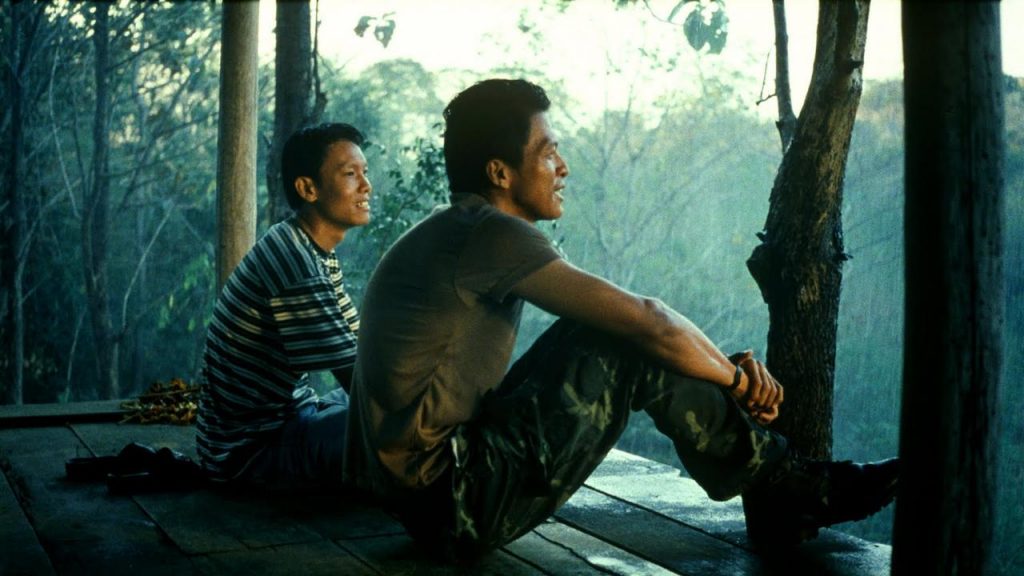Grayson Kennedy ’19 is the Chair of Marketing for the Gallery Engagement Team, an independent student organization responsible for promoting the Museum to Bucknell students on campus. This is her advance review of the film, Tropical Malady, which we will be screening in partnership with the Bucknell Film/Media Studies Program on November 29.

The Samek Art Museum’s exhibition Tomorrow Never Happens (T.N.H.) focuses on queer, utopian futurism. The goal of T.N.H is to exemplify a space that reflects the personal experiences of gay artists in a broader social context. The objective of the Gallery Engagement Team, when creating our fall gala event, Tomorrowland, using the work from T.N.H was to create an inclusive, fun, safe and accepting space catering to a utopian aesthetic.
In the 2004 film Tropical Malady, director Apichatpong Weerasethakul parallels and contrasts urban and rural spaces. Weerasethakul focuses on small gestures of affections. Intimate actions, like simple compliments or hair touching, are played up as grand moments of fondness. In a karaoke scene, the meaning of the song is shared only between the two main characters, Tong and Keng, through loving glances. They make their own meaning of the lyrics that no one else catches on to. In another scene in a movie theater, their actions are in the dark, in public but just barely hidden. They tease at being caught but are careful to never be too obvious. Keng grabs and pokes Tong’s knee, and Tong catches his hand with his legs, simulating an almost sexual clasping. But Keng thinks a face grab looks too obvious. He panics and slaps Tong’ s hand away. In the city, Tong is “just a soldier’s friend.”
In the context of a homosexual utopia, the separation from humanity both isolates and protects the two men. In one scene, rainfall muffles their private conversation, the editor making the clever choice to soften the audio. Nature provides a bubble of safety around them, shrouding them from others, In the city Keng is surrounded by homoerotic influences – a wooden phallus, conventionally attractive male models in clothes ads, a handsome and muscular dance instructor.
Keng and Tong embrace their coupledom, albeit in a slow growing and secretive manner. They share personalized gifts for one another – reveling in their partnership but in secret. In a scene with a cave, an old woman guiding them shares the myth of a special tunnel through which only the blessed can pass. In passing through the space, Keng and Tong prove themselves as worthy of one another.
Desire blooms and is tempted, but never acted upon. In the real world, their relationship is sincere but also somewhat shy. But in the fictional world, they enact their passions and desires feverishly.
Through Tomorrowland, we hoped to build a similar space where spiritual and physical desire doesn’t fight for control. We imagined a utopian safe space where people can express themselves through creative outlets. It could be a paradise of different, even clashing, aesthetics all blended by passion and art and freedom of expression.
The Tiger Spirit, represented by Tong, could turn into various creatures to play tricks on people. Keng plays the man hunting the spirit down. The tiger is an object of desire, perhaps to hunt, perhaps as a lover, or both. As one character in the film comments: “You are his prey and his companion.” Tropical Malady ends on still image of a painting of the tiger spirit taking soul of man, as man submits. Perhaps he is beaten. Or perhaps now they can finally be together for eternity.

